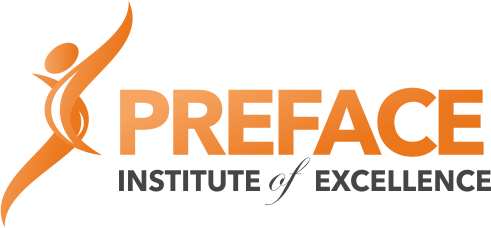Understanding Boarding Schools
Boarding schools have long been recognized as prestigious institutions that offer unique educational opportunities. Unlike day schools, boarding schools provide a 24/7 learning environment where students live on campus. This setting fosters a close-knit community, enhances academic focus, and promotes independence. Students benefit from a structured schedule, access to extensive resources, and a variety of extracurricular activities. However, the transition to boarding school can be challenging, especially for younger students who may experience homesickness. Homesickness is a natural emotional response to being away from home, and it can affect students’ overall well-being and academic performance if not addressed properly.
The Reality of Homesickness
Recognizing Homesickness
Homesickness manifests in various ways, including feelings of sadness, anxiety, and longing for home. It is important to recognize these signs early. Students may exhibit changes in appetite, sleep disturbances, and difficulty concentrating. They may also withdraw from social activities and express a desire to return home frequently. Understanding that homesickness is a normal response to a new environment is crucial. It is not a sign of weakness but rather a common emotional reaction to separation from familiar surroundings and loved ones.
Communicating Feelings
Open communication is essential in dealing with homesickness. Students should be encouraged to talk about their feelings with trusted adults, such as house parents, school counselors, or teachers. Parents play a vital role in this process as well. Regular communication with family members through phone calls, video chats, or letters can provide comfort and reassurance. However, it is also important to strike a balance to ensure that students are engaging with their new environment and building connections at school. Over-reliance on communication with home can sometimes hinder the adjustment process.
Initial Adjustment Period
The first few weeks at a boarding school are often the hardest. During this initial adjustment period, students may feel overwhelmed by the new environment and the absence of familiar faces. It’s common for students to experience a range of emotions, from excitement about new opportunities to anxiety and sadness due to the significant change in their daily lives. Understanding that this period is temporary can provide some comfort. Schools often have orientation programs and activities designed to help new students acclimate more easily, which can significantly reduce feelings of homesickness.
Settling In
As students begin to settle into their new routine, the intensity of homesickness typically decreases. They start to form friendships, become familiar with their surroundings, and find activities that interest them. During this phase, it’s important for students to remain open to new experiences and allow themselves to adapt at their own pace. Regularly scheduled calls or visits from family can provide a necessary emotional boost while reinforcing the support system at home.
Long-Term Adaptation
Long-term adaptation involves fully integrating into the boarding school community and feeling at home in the new environment. Students who reach this stage have usually found a balance between maintaining connections with home and engaging with their new life at school. They become more independent and self-reliant, finding comfort and satisfaction in their daily routines and achievements. This phase represents a significant milestone, as students realize they can thrive away from home.
Strategies for Overcoming Homesickness
Building a Support Network
Creating a support network within the boarding school is crucial. Encouraging students to participate in social activities, join clubs, or take part in sports can help them make new friends and feel more connected to their peers. Establishing relationships with roommates and other students can provide a sense of belonging. Peer support is invaluable, as students can share their experiences and coping strategies with each other. Mentorship programs, where older students support younger ones, can also be beneficial in easing the transition.
Staying Busy and Engaged
Staying occupied is one of the most effective ways to combat homesickness. Involvement in extracurricular activities, hobbies, and school events keeps students engaged and distracts them from feelings of longing for home. Boarding schools typically offer a wide range of activities, from sports to arts to academic clubs, ensuring that there is something for everyone. Finding an activity that excites and motivates a student can make their time at school more enjoyable and fulfilling. Additionally, maintaining a consistent routine helps students feel more secure and grounded in their new environment.
Establishing New Traditions
Creating new traditions at boarding school can help students feel more at home. This can include participating in school events, celebrating birthdays with friends, or developing personal routines that bring comfort. Encouraging students to bring familiar items from home, such as photos, favorite books, or bedding, can also provide a sense of familiarity and security. These small touches can make the boarding school environment feel more like a second home, easing the transition and reducing homesickness.
Long-term Coping Mechanisms
Developing Independence
One of the significant benefits of attending boarding school is the development of independence. While homesickness can be challenging, it also provides an opportunity for personal growth. Learning to manage their own schedule, take responsibility for their well-being, and solve problems independently equips students with valuable life skills. Encouraging students to take on leadership roles or responsibilities within the school community can boost their confidence and help them feel more in control of their situation.
Seeking Professional Support
In some cases, homesickness can persist despite efforts to manage it. Seeking professional support from school counselors or psychologists can be beneficial. These professionals can provide strategies and interventions tailored to individual needs. They can also work with students to develop resilience and coping skills that will serve them well beyond their time at boarding school. Ensuring that mental health resources are accessible and that students feel comfortable seeking help is essential for their overall well-being.
Keeping a Positive Mindset
Maintaining a positive mindset can significantly impact how students cope with homesickness. Encouraging students to focus on the benefits of their boarding school experience, such as the opportunities for academic and personal growth, can shift their perspective. Setting goals and celebrating small achievements can also boost morale and provide a sense of accomplishment. Reminding students that homesickness is temporary and that they have the strength to overcome it can empower them to navigate this challenging period.
Practical Tips for Parents
Preparing Your Child
Preparation begins long before the first day of boarding school. Parents can help their children by involving them in the decision-making process and discussing what to expect. Visiting the school together, meeting the staff, and exploring the campus can help alleviate some of the anxieties associated with the unknown. Packing familiar items and creating a comfortable living space can also provide emotional support.
Encouraging Independence
One of the greatest gifts parents can give their children is the confidence to manage independently. Encouraging self-sufficiency in small ways before they leave for boarding school, such as packing their own bags, managing a personal schedule, or handling basic responsibilities, can make the transition smoother. Reinforcing problem-solving skills and providing emotional support without immediately stepping in to solve issues can empower students to tackle challenges on their own.
Maintaining Communication
While it’s important to stay connected, it’s equally crucial to strike a balance to avoid over-reliance. Setting up a regular communication schedule can provide stability and reassurance for both students and parents. These check-ins can be an opportunity to listen and offer support, but they should also encourage the student to share positive experiences and achievements. This balanced approach helps students feel connected without hindering their ability to adapt to their new environment.
School’s Role in Supporting Students
Creating a Welcoming Environment
Boarding schools play a significant role in helping students overcome homesickness. Creating a welcoming and inclusive environment where students feel safe and supported is essential. Schools can offer orientation programs, mentorship opportunities, and social activities that foster community building. Staff members, including house parents, teachers, and counselors, should be trained to recognize the signs of homesickness and provide appropriate support.
Providing Counseling Services
Access to professional counseling services is vital for students struggling with homesickness. School counselors can offer individual or group sessions to help students express their feelings, develop coping strategies, and build resilience. Providing a confidential and supportive space for students to discuss their emotions can significantly alleviate the impact of homesickness.
Encouraging Peer Support
Peer support can be incredibly effective in combating homesickness. Older students or those who have successfully adapted to boarding school life can mentor new students, sharing their experiences and offering practical advice. Schools can facilitate peer support groups or buddy systems that create a sense of camaraderie and belonging. These connections can provide reassurance and a sense of community for students who are feeling homesick.
Personal Stories and Testimonials
Real-Life Experiences
Hearing from other students who have experienced and overcome homesickness can be incredibly reassuring. Personal stories and testimonials provide a relatable perspective and offer practical advice. Many students find comfort in knowing they are not alone and that others have successfully navigated similar challenges. Schools can facilitate this by sharing testimonials through newsletters, websites, or during orientation sessions.
Alumni Success Stories
Highlighting success stories from alumni who faced homesickness and went on to thrive can be motivating for current students. These stories showcase the long-term benefits of boarding school and provide a positive outlook. Alumni can share how their experiences at boarding school, including overcoming homesickness, prepared them for future endeavors. This can instill hope and inspire students to persevere through challenging times.
Practical Activities and Resources
Journaling and Reflection
Encouraging students to keep a journal can be a helpful way to process their feelings and track their progress. Writing about their experiences, both positive and negative, allows students to reflect on their journey and recognize patterns in their emotions. Over time, they can look back and see how much they have grown and adapted, which can be incredibly empowering.
Mindfulness and Relaxation Techniques
Teaching students mindfulness and relaxation techniques can provide valuable tools for managing stress and anxiety associated with homesickness. Practices such as deep breathing exercises, meditation, and yoga can help students stay grounded and calm. Schools can offer workshops or incorporate these practices into the daily routine to support students’ mental health.
Utilizing School Resources
Boarding schools often have a wealth of resources available to support students. These may include libraries, sports facilities, art studios, and technology centers. Encouraging students to explore and utilize these resources can help them stay engaged and discover new interests. Finding a hobby or activity they are passionate about can significantly reduce feelings of homesickness and enhance their overall experience.
Conclusion
Homesickness at boarding school is a common and natural challenge that many students face. By understanding the emotional journey, utilizing practical strategies, and leveraging the support systems available, students can overcome homesickness and thrive in their new environment. Boarding school offers unique opportunities for personal growth, independence, and academic success. With the right support from parents, peers, and school staff, students can transform homesickness into a period of growth and resilience. Embracing the experience with an open mind and a positive attitude will help students make the most of their time at boarding school and prepare them for future challenges with confidence and strength.
Preface Institute: Leading the Way in Boarding School Preparation
Located in the bustling city of Gurgaon, Preface Institute has established itself as a pioneer in boarding school entrance training over the past seven years. This esteemed institute has built a reputation for providing comprehensive academic and personality development programs tailored specifically for students aiming to gain admission into prestigious boarding schools. With a proven track record of success, Preface Institute stands out as a premier choice for parents and students seeking a holistic preparation experience.
The Vision and Mission of Preface Institute
Preface Institute was founded with the vision of creating a supportive and effective learning environment that prepares students for the unique challenges and opportunities presented by boarding schools. The mission of the institute is to equip students not only with the academic knowledge required to excel in entrance exams but also with the personal skills and confidence needed to thrive in a boarding school setting.
Academic Excellence: Rigorous Curriculum and Expert Faculty
One of the core strengths of Preface Institute is its rigorous academic curriculum. The institute offers specialized training programs designed to cover all aspects of the boarding school entrance exams. These programs include:
- Subject-Specific Coaching: Tailored instruction in key subjects such as Mathematics, English, Science, and Social Studies ensures that students have a solid foundation in all areas tested in boarding school entrance exams.
- Test-Taking Strategies: Comprehensive training on effective test-taking strategies helps students manage their time efficiently, understand exam patterns, and tackle different types of questions with confidence.
- Practice Tests and Mock Exams: Regular practice tests and full-length mock exams simulate the actual entrance exam experience, allowing students to gauge their readiness and identify areas for improvement.
The faculty at Preface Institute comprises highly qualified educators with extensive experience in their respective fields. They are dedicated to providing personalized attention to each student, ensuring that learning is tailored to individual strengths and weaknesses. This approach helps students build a strong academic foundation and enhances their performance in entrance exams.
Personality Development: Building Confidence and Life Skills
While academic excellence is crucial, Preface Institute recognizes the importance of personal growth and development in preparing students for boarding school life. The institute offers a comprehensive personality development program that focuses on several key areas:
- Communication Skills: Effective communication is essential for success in a boarding school environment. Preface Institute offers training in public speaking, group discussions, and interpersonal communication to help students express themselves confidently and clearly.
- Leadership and Teamwork: Boarding schools often emphasize leadership and teamwork. Through various activities and workshops, Preface Institute encourages students to develop these skills, fostering a sense of responsibility and collaboration.
- Time Management and Organization: The structured environment of a boarding school requires students to manage their time and tasks efficiently. Preface Institute provides training in time management and organizational skills, helping students balance academic, extracurricular, and personal responsibilities.
- Emotional Resilience: Adjusting to a new environment away from home can be challenging. Preface Institute offers support in building emotional resilience, teaching students coping strategies to handle homesickness, stress, and other emotional challenges.
Holistic Approach: Extracurricular Activities and Enrichment Programs
Preface Institute believes in a holistic approach to education, recognizing that extracurricular activities and enrichment programs play a vital role in a student’s overall development. The institute offers a range of activities designed to nurture students’ talents and interests beyond academics:
- Arts and Culture: Programs in music, art, drama, and dance allow students to explore their creative side and develop cultural awareness.
- Sports and Physical Education: Physical activity is crucial for overall well-being. Preface Institute offers various sports and physical education programs to promote fitness and teamwork.
- STEM Initiatives: With a focus on science, technology, engineering, and mathematics, Preface Institute provides opportunities for students to engage in hands-on projects, fostering critical thinking and innovation.
Success Stories: A Legacy of Excellence
Over the past seven years, Preface Institute has helped numerous students secure admissions to some of the most prestigious boarding schools in the country and abroad. The institute’s commitment to excellence is reflected in the success stories of its alumni, many of whom have gone on to achieve remarkable accomplishments in their academic and personal lives. These success stories serve as a testament to the effectiveness of Preface Institute’s comprehensive training programs and the dedication of its faculty and staff.
Parent and Student Testimonials
The positive feedback from parents and students further highlights the impact of Preface Institute’s programs. Parents appreciate the institute’s holistic approach and the noticeable improvements in their children’s confidence, academic performance, and overall personality. Students express gratitude for the supportive and nurturing environment that helped them transition smoothly to boarding school life.
Shaurya: “The comprehensive training at Preface Institute not only prepared me for my entrance exams but also helped me develop confidence and independence. The support and guidance I received made my transition to boarding school much smoother.”
Vidhi: “Preface Institute’s focus on both academic and personal development was exactly what I needed. The teachers were incredibly supportive, and the extracurricular activities helped me discover new interests and talents.”
Anirudh: “The mock exams and practice tests at Preface Institute were invaluable. They gave me the confidence to tackle the actual entrance exams without fear. I also learned important life skills that have been essential in my boarding school journey.”
Shambhavi: “I was nervous about moving to a boarding school, but the personality development program at Preface Institute made a huge difference. I learned how to manage my time, communicate effectively, and handle homesickness. It was a game-changer for me.”
Tara: “The holistic approach of Preface Institute helped me grow in so many ways. The academic training was top-notch, and the personal development programs prepared me for life at boarding school. I’m so grateful for the experience and support.”
To start your journey with us, click here.







